What is ebola?
The dangerous infectious disease Ebola often leads to death if left untreated. Learn more about our fight against Ebola.
Read more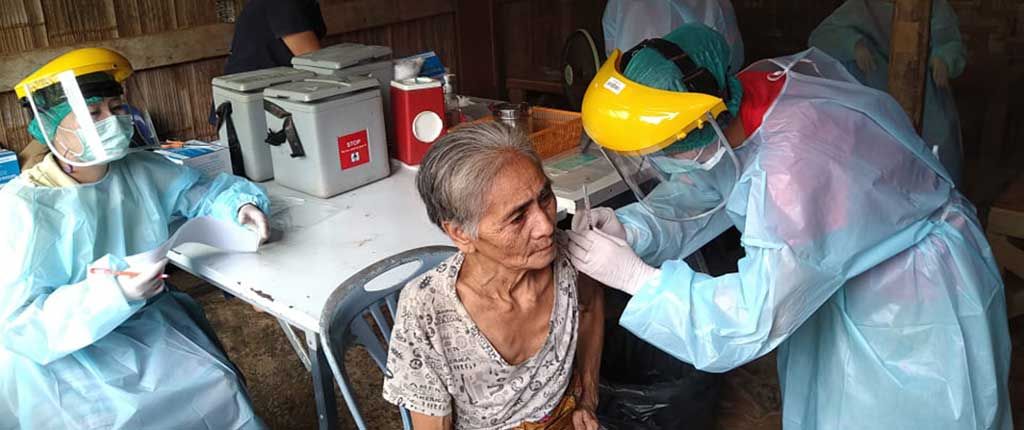
Prevention measures against the spread of COVID-19 are now integrated as standard in all MI health projects. The challenge now is to learn from the experience and improve the health situation of people in our project countries in the long run.
“We can only protect ourselves if we keep the whole world in mind. Otherwise, the coronavirus – or any other virus – will keep spreading around the world,” says Cordula Wasser, the Head of the Regional Department Asia at MI.
While the initial goal at the beginning of the pandemic was to continue vital relief programs despite lockdowns and restrictions, prevent the spread of the disease by supporting and strengthening health systems and water, sanitation and hygiene (WASH), and alleviate the economic impact of the pandemic on the poorest and most vulnerable through social programs, the goal today is already a step further.
“The challenges we faced were similar Thinking about health globally around the world. We therefore developed global solutions and guidelines to combat the pandemic, adapting and implementing them while considering the respective local conditions together with our teams on the ground and partner organizations,” says Wasser. Many of the measures developed are now integrated standards in MI’s health projects worldwide.
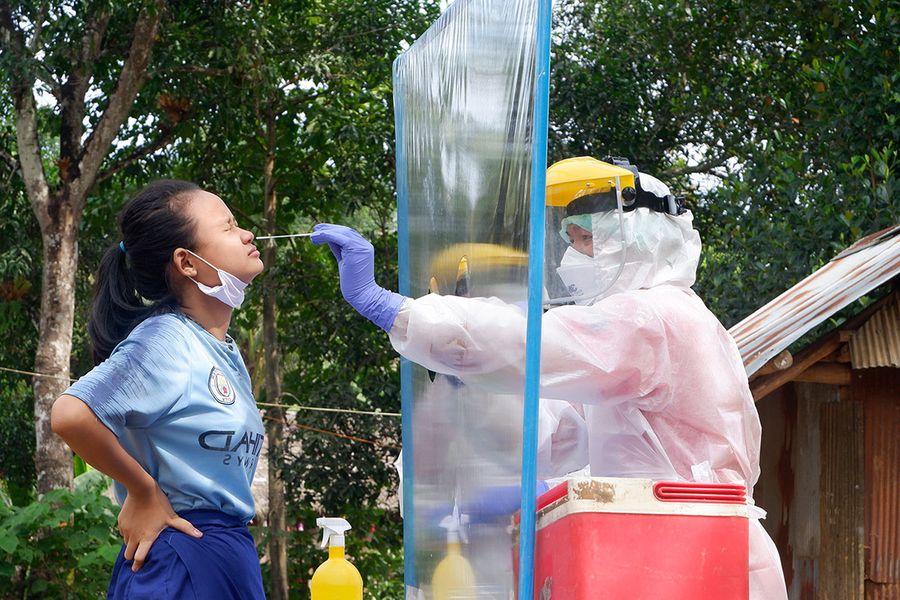
One example is MI’s aid in Thailand: In the province of Mae Hong Son, in the northwest of the country, MI supports refugees from neighboring Myanmar in two camps. Up to 19,000 people are housed in cramped conditions – an ideal environment for the spread of the virus. However, except for a major outbreak in November 2021 that led to the temporary closure of both camps, the spread has been largely controlled thanks to strict measures, ranging from the usual hygiene efforts and an entry control for visitors and new arrivals to the establishment of separate treatment centers for respiratory diseases as well as an isolation ward for COVID-19 cases.
Since August 2021, teams from MI have been vaccinating residents of the camps against COVID-19 with vaccines provided by Thai health authorities. At-risk groups and health workers were among the first to receive the vaccine, followed by adult camp residents and children aged 12 to 17. “The vaccination rate is not yet at the level we would like to reach. There is a lot of prejudice and misinformation circulating among residents in the camps, which is why awareness raising and community engagement are essential parts of our work on the ground. We are working closely with local authorities to make vaccines more readily available, and will continue to help inform and raise awareness about the need for, and the benefits of, being vaccinated. We are focusing on vulnerable groups like those with chronic health conditions, the elderly, and schoolchildren,” says Per Vogel, Program Coordinator at MI in Thailand.
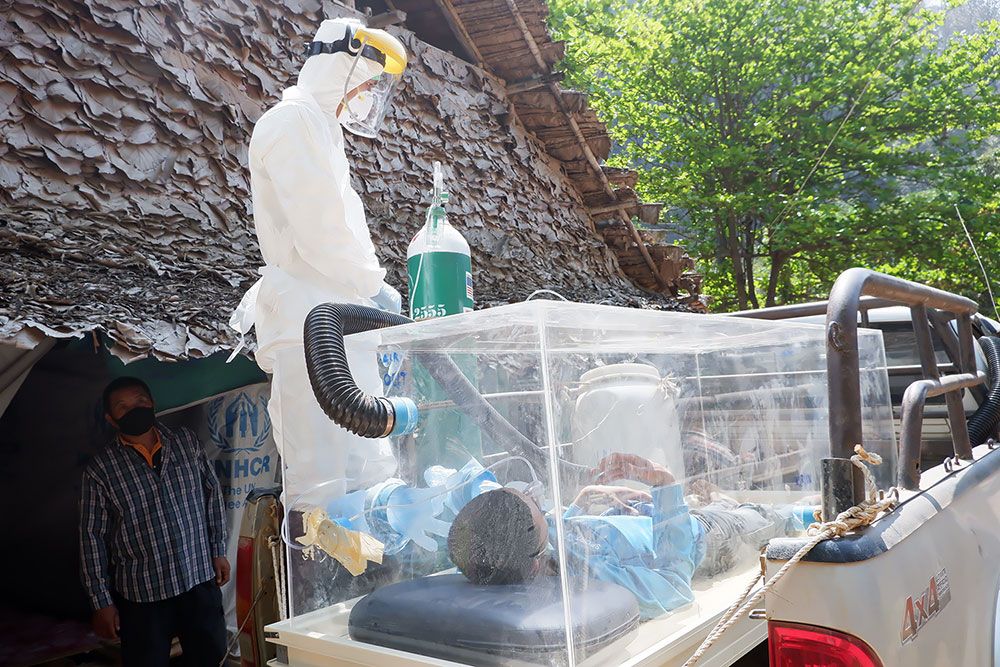
| 849 | Total number of positive COVID-19 cases (in the period 7/8/2021–4/17/2022). |
| > 19.000 | patients treated in the health facilities supported by MI. |
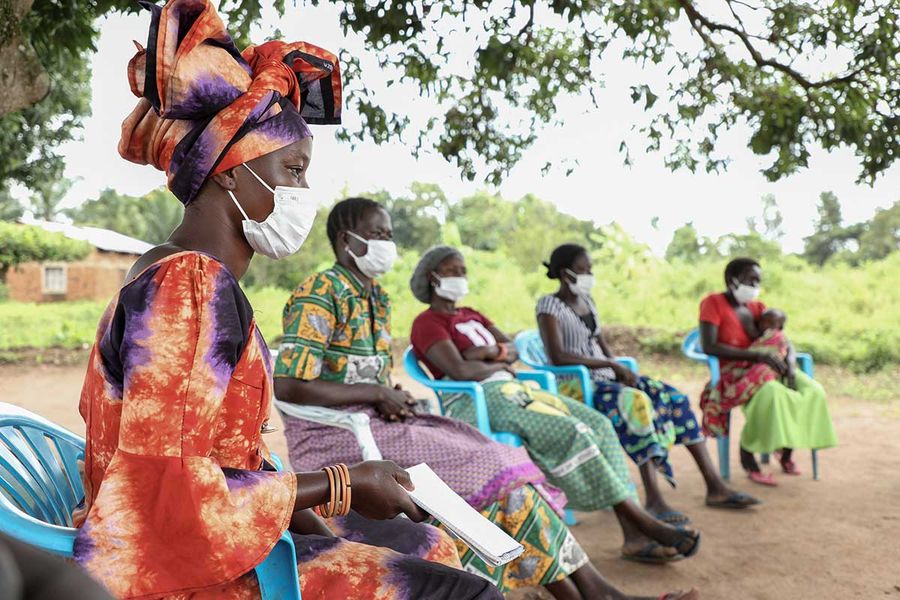
In the Democratic Republic of Congo, raising awareness among the population also plays a central role in health work. Outbreaks of dangerous infectious diseases such as Ebola or even the plague are frequently. Between 2018 and 2020, the country had to deal with the second largest Ebola outbreak in the world. The highly qualified team of MI has gained a lot of experience in dealing with epidemics over the past years.
The core element of successful projects is community integration: “We work according to the People First Impact Method – P-FIM for short – a participatory approach that entails listening to people and letting them take action themselves. This involves using the skills available in the community to educate them about the risks of COVID-19,” reports Dr. Jean Paul Uvoyo Ulangi, medical director and health advisor at MI in DR Congo. In the corona pandemic, teams rely on already established community-based approaches and structures. For example, trained health workers from the project areas and community members educated their neighbors about risks, routes of infection and effective protective measures – at doorsteps, via flyers, information posters and local radio broadcasts.
This community-based work has clear advantages in dealing with epidemics: On the one hand, it helps to gain the trust of the population and dispel rumors by specifically addressing locally circulating fears and concerns. On the other, disease outbreaks in the villages can be detected and reported at an early stage and thus responded to appropriately – like by spraying insecticide against the carriers of the plague. In exchange with local health workers, MI has developed strategies and crisis response plans for this purpose. In addition, supplies of medicines, medical equipment, and a mobile medical isolation ward for the rapid isolation of epidemic cases have been provided.
In October 2021, MI was honored with the “Else Kröner Fresenius Prize for Medical Development Cooperation”, a recognition for the work of Dr. Uvoyo Ulangi and his team. The prize money will primarily be used in the country to strengthen the health system and prepare for future epidemics.
| 207 | health facilities supported by MI in response to COVID-19. |
| > 1,4 Mio. | patients treated in health facilities supported by MI. This includes all inpatients and outpatients treated, as well as people vaccinated against COVID-19. |
| 347.500 | people with access to clean drinking water provided by MI. |
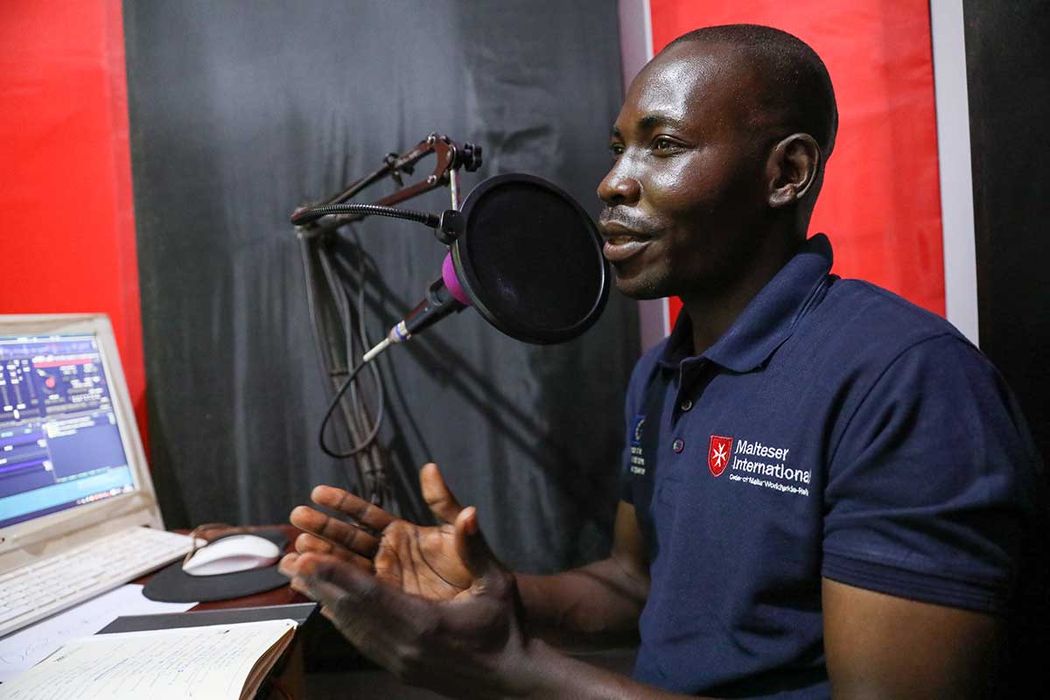
The dangerous infectious disease Ebola often leads to death if left untreated. Learn more about our fight against Ebola.
Read moreThanks to your donation we are fighting and containing the disease that especially occurs in tropical and subtropical areas.
Read moreTogether with local partners, Malteser International is constantly fighting against the COVID-19 pandemic.
Read more